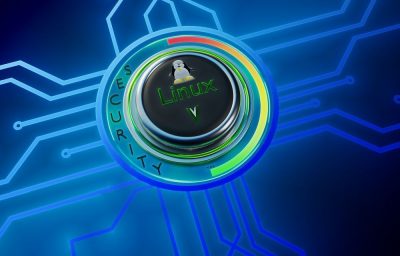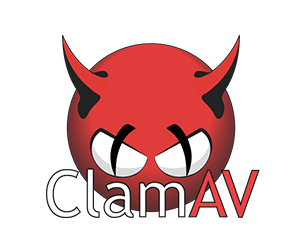
There is a misconception among Linux users that Linux doesn’t need antivirus software. The OS might be more secure than Microsoft`s Windows. But let’s be honest, antivirus is crucial for any computer.
With this in mind, not only do you need antivirus for Linux to protect yourself from threats, but you also need it in order not to spread them unintentionally. You need to find a good antivirus for Linux to protect your device from threats like email phishing attempts, spoof URL addresses and viruses. There are several virus scanners available for Linux. In this list, you will find the best antivirus for Linux discussed in great detail.
Table of Content
Pros and Cons of Having Antivirus for Linux
Pros:
Cons:
- Slows down the network or PC – Installing and running antivirus software in your Linux device can use up a lot of hard disk space and computer memory slowing down your computer.
The Best Free Antivirus for Linux 2019
1. Sophos – Best option for system performance

Sophos antivirus for Linux is a solid antivirus that has minimal impact on system performance. This software does provide not only real-time scanning but also supports on-demand scanning features. It detects Trojans and worms and also helps remove the same from the repository. Sophos offers superior on-demand, on-access and scheduled scanning for any Linux system. It delivers top-notch performance, reliability and stability to your Linux system.
This software is progressively tuned for the best performance. Its lightweight agent ensures your Linux boxes remain safe without slowing them down. The software`s protection updates are tiny, approximately 50KB, meaning they are easy on your system and network.
Sophos Antivirus for Linux has an effective engine that detects and cleans Trojans and viruses among other malware. In addition to Live Protection, Sophos Antivirus for Linux also relies on sophisticated, detection-based and advanced heuristics to locate suspicious files on your system in real-time through Sophos Labs.
Sophos Antivirus for Linux comes with handy tools too. The software can remove macOS, Android and Windows malware variants, which can prevent your Linux system from becoming a distribution point for other OS. Also, the software not only inhibits Linux based malware but also works well on all major operating systems like Android and Windows.
It comes with a free version that has fewer functions as well as some drawbacks. The paid version comes in additional features such as an anti-ransomware feature.
Pros:
Cons:
- Can exclude specific files from the scan
2. ClamAV Antivirus – Best option for sensitive data

This is another popular and highly appreciated antivirus for Linux. It is easy to use and has a clean-cut approach to functioning and design. ClamAV is a fully open-source antivirus that is installed to the main repository. It is regarded as versatile antivirus software to detect malware, viruses and Trojans.
ClamAV Antivirus is quite robust when it comes to performance. It does a lot more than just scanning your emails for malware. The software has a very active group of developers who continue to make improvements to it.
If you are worried about recent malware releases that may infect your Linux system, the truth is that being up-to-date with any latest malware is difficult because this can`t happen until the newly released malware signatures are detected. ClamAV ensures that its database is frequently updated to the most recent virus and malware definitions, which can provide improved protection.
ClamAV is versatile. It supports file and archive unpacking, multiple signature languages and multiple file formats. It also comes with a quite deep built-in scanner. It can look into ELF executables, portable executable files, ELF executables and most archive types.
Pros:
Cons:
- Lacks native GUI
- No sophisticated protection features
3. ESET File Security – Best choice for business use
Free version: Yes

This robust ESET NOD32 technology protects your Linux system against malware as well as cross-platform threats. The software has a robust database of definitions, so its tools have an excellent and quality scanning capability. One of its tools is Remote Management, which is great for users who manage multiple devices.
ESET File Security is a full-fledged antivirus solution with a set of valuable features to shield any Linux platform from all kinds of threats. Its antivirus package is designed to offer numerous features, including anti-phishing, scheduled scans, real-time protection and also does not let malicious code run in your apps.
The premium version also includes other features like Personal Firewall and Parental Control in addition to what the basic version offers. Valuable features, indeed. Opting for the complete suite also provides various types of security features in a bunch designed to keep your Linux system safe from attacks, clean from malware and responsive in terms of performance.
Pros:
Cons:
- May have problems blocking malware with signatures
4. Comodo – Best option for beginners

Comodo Antivirus is a reliable and robust antivirus for Linux. The software can detect most types of malware, spyware, viruses and sketchy files. It promises to `obliterate threats’ while protecting your CPU usage. Comodo is a feature-rich antivirus that’s great for both beginners and experts.
Though the software is not open-source, it still has an incredible set of useful features. Boasting on-access and on-demand virus scanners, Comodo Antivirus also utilizes cloud-based behavior monitoring of unknown files to offer unrivaled protection against zero-day malware. Its powerful antivirus engine is accompanied by a highly configurable mail gateway to block email-borne and spam threats. Comodo Antivirus for Linux (also referred to as CAVL) comes with real-time behavioral analysis, a robust on-demand scanner spam mail protection and anti-phishing features. The gateway is compatible with SendMail, Exim, Postfix and Qmail.
The software is easy to use and very comforting to those new to the Linux system. Another thing Comodo does best is the ability to run browser or other programs in the sandbox or create a virtual desktop to keep you secure from any threats.
There is a reason why it has not yet been considered the best antimalware program. It is due to its lack of web filter that can protect users from malicious URLs. It also means that the software is not so good at detecting malware when compared to its competitors. All in all, you can still scan them out, and Comodo compensates with other useful features.
Comodo is a reliable, well-designed Linux antivirus with decent cybersecurity and privacy function worthy of your trust.
Pros:
Cons:
- No web filter
- Low malware detection rates
5. Avast Security Suite – Best real-time protection

Avast designed its antivirus version for Linux with a different approach from the one it uses on other platforms. The company incorporated its most baseline multi-dimensional security options to design a straightforward security product that could meet the immense spirit of Linux products. This antivirus is good for detecting viruses and malware in your Linux based system and is also a good choice for user with dual-boot systems (Linux and Windows in the same device).
As there are numerous users with dual-boot systems, in which they use Windows for gaming needs and Linux for computational purposes, any malware from one OS can corrupt the other OS too. In such cases, Avast can come to their rescue. It is great antivirus software for file-server security.
Avast Security Suite is a robust security tool that installs itself deep into your system`s repository, providing on-hand, multi-layered real-time protection.
The software has three main categories: File Server Security, Core Security and Network Security. Avast Core offers router and traffic scanning to ensure your network is kept safe from any unwanted stowaways. It also comes with a web filter feature. Avast Core for Linus has robust online security, which protects you from accessing, malicious websites or downloading and opening suspicious files. The software includes a great core scanner along with real-time antimalware, so you get double security.
Pros:
Cons:
- Expensive
- Some premium features are only available on the paid version
6. Bitdefender – Best for advanced users

This antivirus software is another robust contender for the best antivirus for Linux. It is a versatile cybersecurity software that protects Linux-based systems as well as dual-booted systems. It comes with an exciting set of useful features, including deep archive scanning, desktop integration, network security and GUI and command line.
Bitdefender antivirus for Linux has an AI that features a learning curve keeping away even malware that isn’t in its database. It also comes with a highly advanced real-time malware scanner that spots suspicious or malicious behavior in the files and shields you against any harm they pose. Bitdefender uploads an imprint to its secure cloud for analysis and then notifies you if it’s safe or not.
This software also comes with a powerful web filter, malware scanner and network security. It encloses your device into a nutshell that shields it from hacking almost completely.
Pros:
Cons:
- Highly sophisticated
Does Linux Need Antivirus?
If some people have the notion that Linux is malware-free or there is nothing like Linux malware, they are entirely wrong. There was a time when people believed than online hackers did not target Linux users. The OS earned the name as secure software that was unreachable. For a while now there has been a debate on whether Linux needs an antivirus.
For the most part, Linux might be virus-free, but this does not mean users should be complacent. One version of Linux Mint, the 17.3 Cinnamon, was found to contain a keylogger infection. This was mostly experienced by user who downloaded the software from Mint`s download page. It happened as a result of hackers altering a PHP script used by Mint in a WordPress installation.
Linux users who downloaded the software from a different source than the official repository are at risk of online threats. Other threats to desktop Linux include adware and browser hijackers. These threats can be picked up through the web browser. So even if the OS is secure, your web browser is vulnerable. This makes constant ads to pop up on your browser and passwords to get leaked.
How to Choose the Best Antivirus for Linux
There are numerous antivirus tools on the market for Linux, most of which use baffling marketing techniques and technical terms to deceive you with flashy messages. Working out which is the best antivirus for Linux can be extremely confusing unless you work with computers regularly.
When choosing an antivirus for Linux, you want it to have all the premium features of detection and removal. Most antivirus software will come with a free and a paid version. Free software comes with basic features and may repeatedly annoy you with ads while paid software boasts robust features and is free of ads.
Another aspect to consider is whether all antivirus tools are as good as each other. While any good Linux antivirus software is far better than not having one at all, not all its tools are as good as each other, whether it’s at detecting malware and viruses, removing them once they are found or at having the least impact on your system`s performance.
If you want antivirus software that does more than just scanning, then look for one with some additional useful features. Antivirus apps and software continue to advance year after year beyond only detecting malware. They now come with dizzying array of great features, some of which may be of help to you.
Some of the standard features to look for in your antivirus for Linux include child protection tools, spam filter, internet firewall, identity safe, password manager and file encryption tools. These features are designed to offer more security to your system. Some of them, like an internet firewall, seek to keep you safe when you browse the internet and a password manager is designed to protect your valuable data from any online terrorists trying to steal or corrupt it.
Conclusion
Keeping your operating system cyber-secure should be a top priority as keeping your real-life identity secure from possible physical threat. Nowadays, any computer, even if it’s Linux-based, which is pretty safe, contains some of your most precious and valuable information. One successful ransomware, spying or phishing, is adequate to deal you a horrible blow. These best antivirus software for Linux are diverse and an excellent addition to enhancing your cybersecurity needs.
FAQs
Is antivirus necessary for Linux?
Yes. Though Linux is considered the most secure OS, adding an antivirus adds more to that security.
Is there any free antivirus for Linux?
Most of the Linux antivirus software comes with a free and paid version. The free version may have great security features but the paid version offers more.
Can antivirus for Linux work on dual-boosted systems?
Some antivirus software for Linux, like Bitdefender and Avast Security Suite, support malware detection in dual-booted systems.
Will antivirus for Linux slow down my device?
Most of the antivirus software for Linux have minimal impact on system performance, so you can still run your programs smoothly.
Can I block or filter websites using antivirus for Linux?
Most of them come bearing this feature. They make sure you don’t click on malicious URLs or access suspicious websites.